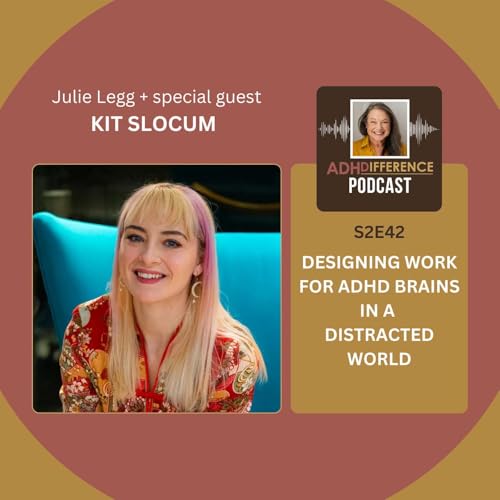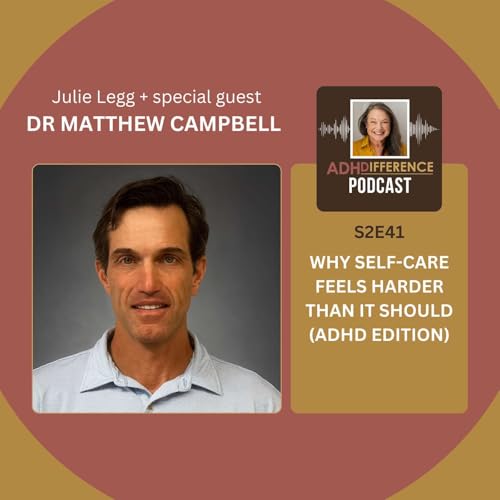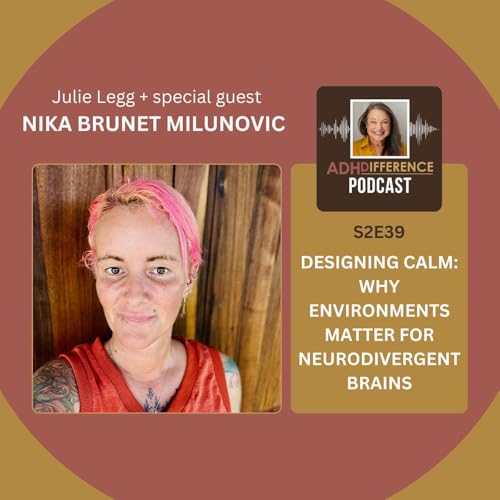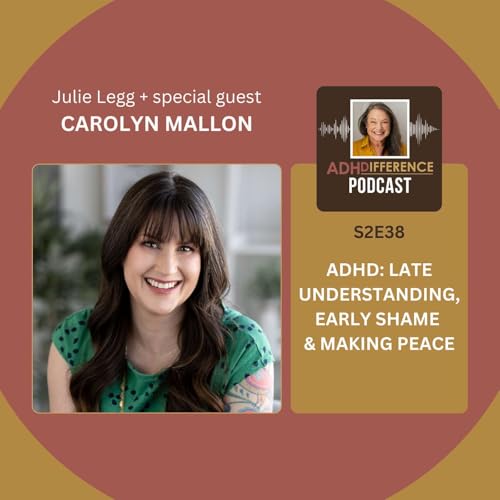Julie Legg is joined by Nika Brunet Milunovic, social worker, researcher, and founder of Calm Nest Collective. Nika shares how years working in the events and creative industries exposed a disconnect between how environments are designed and how human nervous systems actually function.
Drawing on her lived experience as a late-diagnosed neurodivergent woman, as well as her academic research, Nika explains why sensory overload, burnout, and emotional collapse are not personal failures, but predictable outcomes of overstimulating spaces. From conferences and festivals to offices, schools, and public venues, she makes a compelling case for sensory-friendly design as a form of prevention, not luxury.
This conversation explores how thoughtful environmental changes can radically improve regulation, focus, and wellbeing for ADHDers and non-ADHDers alike, and why creating calm, inclusive spaces is one of the most practical ways we can support mental health at scale.
Key Points from the Episode
- Why the events and creative industries are both a haven and a hazard for neurodivergent people
- How burnout and mental health crises often stem from environmental overload, not individual weakness
- What sensory-friendly spaces actually are, and how they support nervous system regulation
- Why quiet rooms, calm corners, and sensory spaces benefit everyone, not just ADHDers
- The science behind sensory deprivation, regulation, and the body’s stress response
- How workplaces and schools unintentionally exclude neurodivergent needs
- Small, low-cost environmental changes that make a big difference
- The role of social media in helping neurodivergent people find language, community, and self-understanding
- Why asking people what they need is the most powerful design tool we have
- A reminder that strategies are personal, and regulation is not one-size-fits-all
Links
WEBSITE: https://calmnestcollective.com/
INSTAGRAM: https://www.instagram.com/thatinclusiongirl
LINKEDIN: https://www.linkedin.com/in/nikabrunet/
Send a text
Thanks for listening.
📌 Don’t forget to subscribe for more tools for beautifully different brains.
🌐 WEBSITE: ADHDifference.nz
📷 INSTAGRAM: ADHDifference_podcast
📖 BOOK: The Missing Piece: A Woman's Guide to Understanding, Diagnosing and Living with ADHD
ℹ️ DISCLAIMER: This podcast is for informational purposes only. The views expressed are those of the guests and do not necessarily reflect those of the host or ADHDifference. Read More
 29 mins
29 mins 35 mins
35 mins 41 mins
41 mins 41 mins
41 mins 39 mins
39 mins 47 mins
47 mins 29 mins
29 mins 31 mins
31 mins
